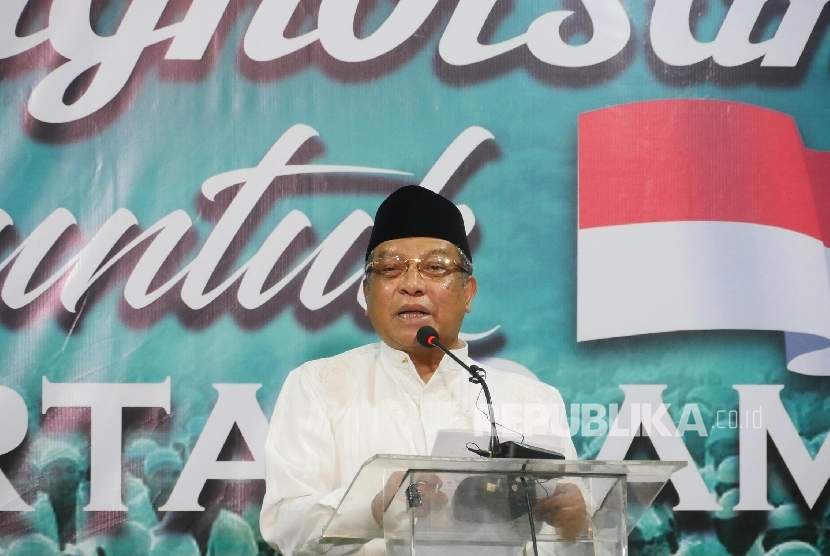REPUBLIKA.CO.ID, JAKARTA -- The humanitarian crisis befalling the Rohingya Muslims in Rakhine State of Myanmar is not a religious conflict, according to Nahdlatul Ulama Central Executive Board (PBNU) Chairman KH Said Aqil Siradj.
"We have to address clearly what is happening to the Rohingya in Myanmar," Kiai Siradj noted after Pagar Nusa Chairman M. Nabil Haroen held a discussion with President Joko Widodo (Jokowi) at the Merdeka Palace on Tuesday.
He said several Rohingya Muslims became victims of the violence in Rakhine, Myanmar, but it should not be classified as a religious conflict.
"We are sorry, but the crisis should not be interpreted as a religious conflict, and the Muslims in Indonesia should not be provoked," the PBNU chairman noted.
Also read: Respond cautiously to Rohingya crisis: Wiranto
Hence, Coordinating Minister for Political, Legal, and Security Affairs Wiranto has called on the public to respond cautiously to the humanitarian crisis in Rakhine State of Myanmar.
"People should be calm and not act carelessly, as the government has taken necessary measures to end the tragedy," Wiranto remarked in a general lecture at the Tarumanegara University here on Tuesday.
He noted that President Jokowi had taken strict measures in response to the tragedy and had sent the foreign affairs minister to Myanmar.
The move has demonstrated the government's deep concern over the crisis, Wiranto added.
"The public can hold protests as long as they do it peacefully. Do not make your own move and throw molotov cocktails," he noted.
Wiranto, in his lecture, reiterated that it would be unnecessary to withdraw the Indonesian ambassador to Myanmar, as it would complicate aid distribution to the country.
In the meantime, Foreign Affairs Minister Retno L. P. Marsudi has proposed a 4+1 formula to Myanmar to help solve the security and humanitarian crisis in Rakhine State, where the Muslim Rohingyas have face prosecution.
The formula will comprise efforts to restore security and stability, maximize self-restraint, avoid violence and offer protection to all in Rakhine State regardless of ethnicity and religion, and open access for humanitarian aid.


